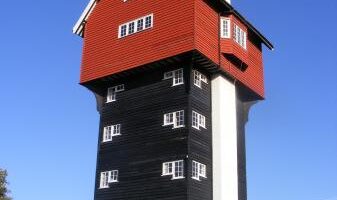ANYONE looking to slash their energy bills for winter should look out for “vampire settings” sucking energy unnecessarily and pushing up costs.
Many of us aren’t aware of the clever settings on a range of devices around the home designed to save energy and cut your bills.
Making some simple tweaks to the way that you use common items – from thermostats, boilers and radiators to appliances like dishwashers, fridge freezers, washing machines – could save as much as £850 a year.
The best part about all these changes is that they won’t cost you a penny as they are totally free
Here’s the exact setting you need to set your appliances, so you’re not using more energy than you need to and paying over the odds.
Thermostat – save £380
Reducing the thermostat temperature by one degree can reduce your fuel bill by 10%, according to Energy Saving Trust.
Read more in money
Uswitch has also explained that households could make potential savings of up to £127.70 just by making that one simple change.
And it means that if you were to turn your thermostat down by three degrees from 23°c to 20°c you could shave over £380 off your energy bills this winter.
Even then the World Health Organisation suggests most healthy people should heat their homes to 18°C so you could save even more by dropping it further.
Dishwasher – save £143
The average dishwasher uses between 1.2kWh and 1.5kWh per load, according to research by Compare The Market.
Most read in Money
Your normal dishwasher setting is usually at a temperature of between 55ºC and 65ºC.
But you could save cash by running your machine at a lower temperature with the help of a few different settings.
An eco wash or energy-saving setting generally uses around 20% to 40% less energy, according to Which?.
They generally run at 45ºC to 50ºC, which means it’s cheaper to run but still gets your dishes clean.
According to Bosch, using eco-mode compared to the auto programme will save you around 523 kWh of energy over a year.
One kWh of electricity currently costs 27.35p – so that’s a saving of £143.04 over a year.
Boiler – save £112 a year
Over 10.7million households can save an average of £112 a year by changing the flow temperatures on their combination boilers, according to charity, Nesta.
The average household sets their combination boiler water flow temperature between 75°C and 80°C.
But if households were to drop this temperature to 60°C they could slash their gas consumption by 9% – saving households over £100 a year.
Households willing to turn their temperatures down to 55°C could even slash their consumption by 12%.
The trick works if you have a combi-boiler, which provides both hot water and heating – and it’s the most common type of model used by Brits.
But, it’s important to bear in mind that if you have a hot water cylinder, you should keep the dial on 60C to stop the spread of germs and bacteria.
Legionella bacteria flourishes between 20-45 degrees, so it’s important to store water at a higher temperature.
Radiators – save £75
The average household can save up to £75 every year if they have thermostatic radiator valves fitted on all their radiators, according to British Gas – so use it.
If you’ve got a TRV attached to your radiators, you’ll be able to limit or turn off the flow of hot water into the radiator.
This can help reduce the amount of gas that your boiler needs to burn to heat up the water in your central heating system.
The whole point of a TRV is to detect the temperature of a room and then control how much hot water is let into the radiator.
So if the room is cold, the TRV will sense this and allow more hot water into the radiator to heat up the room quickly.
As the room gets warmer, the TRV will restrict the amount of hot water coming into the radiator to maintain the temperature of the room.
The number settings on the TRV roughly correspond to the room temperatures below:
- 0 = 0°C (off)
- ✱ = 7°C (usually shown as a snowflake or full stop symbol)
- 1 = 10°C
- 2 = 15°C
- 3 = 20°C
- 4 = 25°C
- 5 = 30°C
Households should only have TRVs on five or their maximum setting in rooms where you need the short and sharp heat.
And if you’re not using a room consider turning the valve to 0 to cut your bills even further.
If you’ve got radiators without TRVs consider replacing the valves with TRVs.
You can pick them up for less than £10 and they’re easy to replace yourself if some of yours are not working.
Tumble dryer – save £53
Tumble dryers are cash-guzzling machines that cost around 67p per cycle.
But most models of now come with an eco-mode that can be used to save the environment – and some cash – it might also be called an economical cycle.
For big families who do three loads of washing a week, that could mean you’re spending £104.52 a year tumble drying your clothes.
But households that opt for the eco or low heat setting can slash their energy bill by £53 a year according to Uswitch.
But it’s important to highlight that households can save serious cash with a heated airer – we’ve worked out how much they cost to run here.
Fridge freezer – save £50
Experts at the Food Standards Agency recommend that the temperature of fridges be set to 5°C and freezers should be at -18°C.
Having your fridge at its optimum temperature can help it run more efficiently and is a vital way of making sure it isn’t costing you more than it should.
You’ll be able to change the temperature of your appliance by using a dial on the interior or exterior.
If it’s digital it should display the exact temperature set in degrees Celsius but if it’s an analogue dial with numbers one to five, the higher the number the colder the fridge freezer.
Uswitch energy expert Ben Gallizzi said: “Setting the fridge temperature too high will result in it running at its full power output – and could even cause some food items to freeze.
“Setting it too low runs the risk of food going off.”
You could be wasting upwards of £50 a year, based on the average fridge using 166kWh of energy to run for 12 months.
Washing machines – save £37 a year
Most models of washing machine now come with an eco-mode that can be used to save the environment – and some cash.
This setting will use less water and means you’ll use less energy to heat it when washing your clothes.
Households that use the eco mode instead of a normal cycle can save £37 a year.
And reducing your washing temperature to 30°C could save you £13 a year while cutting further to 20°C could shave £24 off your annual bill.
How else can I cut appliance costs?
Households can cut their energy bills further by ensuring that they’re not running their appliances if they’re not full.
Data from Uswicth estimates that not running your washing machine, tumble dryer and dishwasher if they aren’t full will slash your energy bills by £40 a year.
Thousands could further slash their bills by ensuring that they don’t leave their appliances plugged in and on standby when not in use.
Devices that drain energy while plugged in and on standby include:
- Hi-Fi systems – £143 a year
- Computers – £95 a year
- TVs – £24 a year
- Set-top-box – £23 a year
- Printers – £20 a year
- WiFi router – £19 a year
- Microwave – £16 a year
- Games consoles – £12 a year
Appliances which use energy to cool things – like fridges and freezers – are also expensive to run and there are ways to cut costs.
Keeping your fridge freezer clean can also save £45 a year – dust on the condenser coils can reduce the efficiency by as much as 25% says Which?.
And failing to defrost it for instance could be adding on an extra £150 a year.
The nation’s love of brews could be costing us a lot.
Read More on The Sun
Kettles – along with other kitchen appliances like cookers and blenders – account for 19% of the average home’s energy use.
So make sure you’re not overfilling it to save £55 a year.










